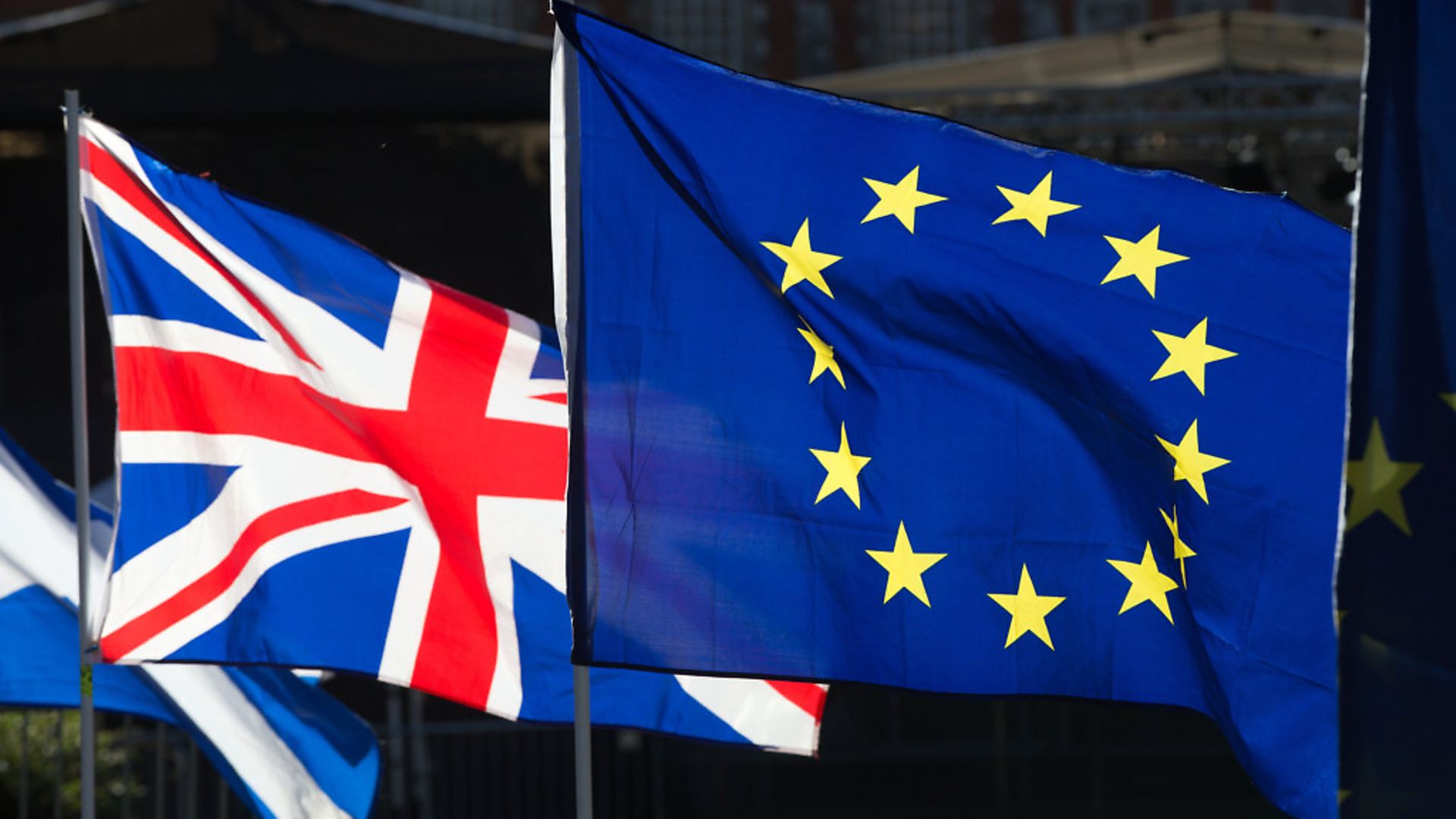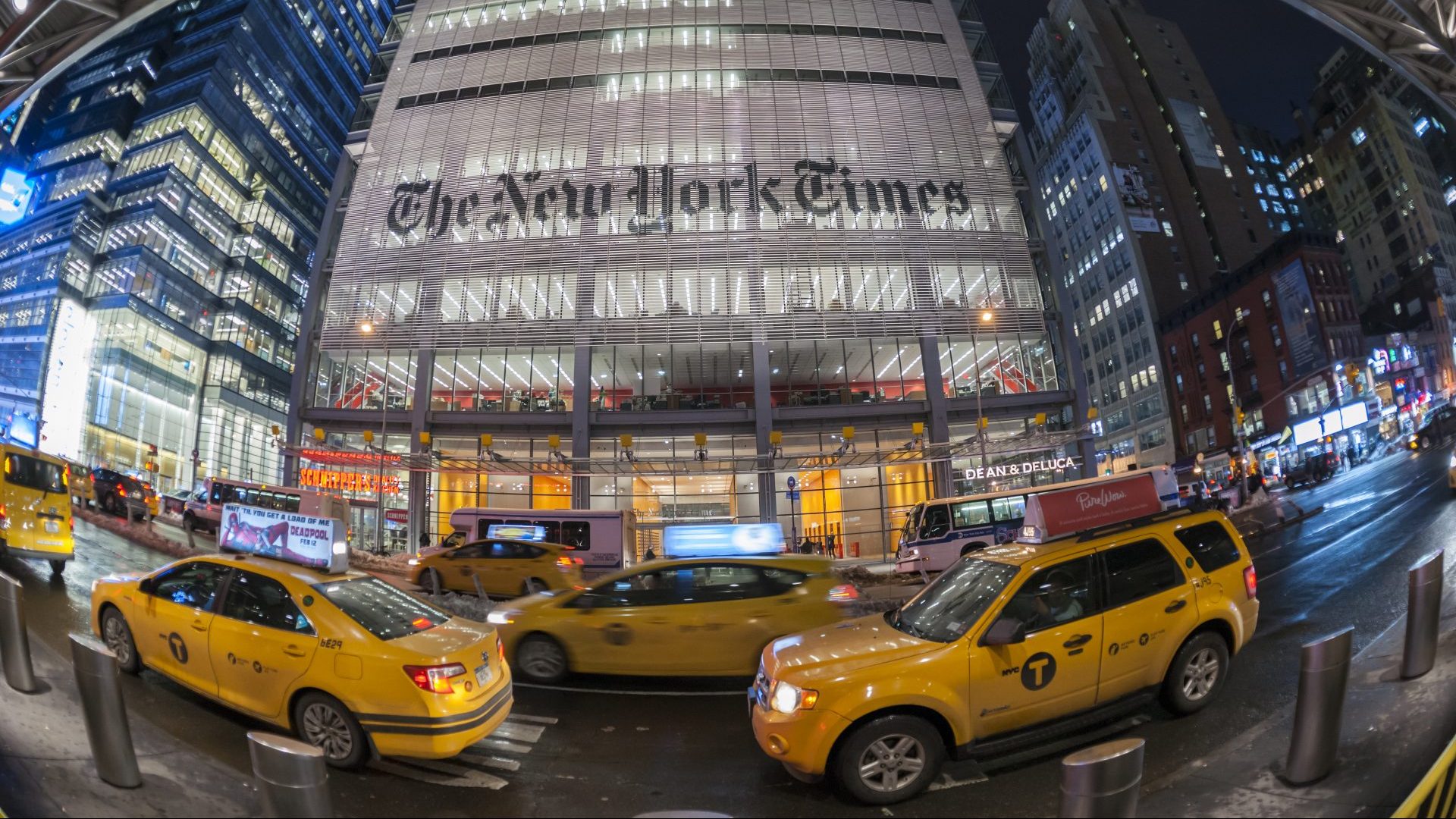Correspondence in TNE’s Letters pages about rejoining the EU continues to display British mercantile thinking – “what is in it for us?” This attitude is the biggest reason why Britons don’t feel they are Europeans.
There is no mention of pan-European solidarity, or richer countries being willing to put their hands in their pockets for poorer member countries or prospective member countries such as Ukraine.
Can this British mercantile mentality ever be changed? Or is the EU simply better off without Britain demanding more than the other countries in terms of rebates, vetoes and extra benefits, as happened last time we were in?
Petra Suckling
Every week TNE has numerous letters dwelling on the awfulness of Brexit. Quite right, but it gets us nowhere.
As a young executive many years ago, after a presentation I had made to the local board, I was given some very valuable advice by one of the elder statesmen. He said: “George, even though you may be right, if you go into a presentation with the attitude of ‘Agree with me or you are a c**t’, you are likely to lose the argument and are certainly not going to win any friends.”
There is too much of that around in the world of Remain. We simply need to forget the referendum and start again.
We must not look back to a failed referendum, but look forward to the generations of our children and grandchildren and stress the positive benefits of working more closely with our European friends. We need to keep emphasising the potential trade benefits, the advantages of common regulation and of the Erasmus and Horizon programmes. Only then do we have a chance of taking people with us.
George Taylor
Kendal, Cumbria
Brexit is not just a political or economic issue. It has resulted in hatred and malice that are totally un-Christian against recent immigrants and other foreigners.
I am a committed Catholic who sees the anguish in the faces of some eastern European people in my church. The European Research Group has Catholic members like Jacob Rees-Mogg. They can’t be loyal to both God and the politics of hate. They should abandon their stance on Europe and their rhetoric, or leave the church.
Paul Dardis
Peterborough, Cambridgeshire
Dirty word
Alastair Campbell’s Diary (TNE #320) uses Neil Kinnock’s word “Brexomertà” for a conspiracy of silence on Brexit. When I was at the European School and Neil was transport commissioner, he came and taught a geography class. I suggested that he could follow Michael Portillo’s example and do a broadcast on great railway journeys in Wales. Neil wittily replied that it would be problematic as the Tories had closed most of the old railway lines.
The Labour Party’s acceptance of Brexit as a fait accompli demonstrates a failure to understand how the situation has changed. Now, most people think Brexit was a mistake. The least that Sir Keir Starmer should do is to suggest that the Brexit deal needs to be renegotiated, leading perhaps to the same deal as enjoyed by Switzerland.
David Hogg
Bristol
“Brexomertà” might be a nice newly coined word, but I think “Brexshit denial” might get more traction.
Ross Hamilton
Peace please
You nominate Volodymyr “send me more weapons” Zelensky as your man of the year (TNE #320). I despair of peace with this widespread and commonly shared opinion.
Rishi Sunak and Zelensky have asserted that there can be no peace discussions without Russia’s complete withdrawal from Ukraine. Whatever would Russia’s incentive be in that unlikely event?
Negotiations between any two parties should be mutually advantageous; the leasing of Crimea and the Donbas region for 100 years recognising the sovereignty of Ukraine, war reparations for Kyiv and other cities in Ukraine linked to the renewed flow of gas into Europe and the cessation of all fighting would be a real win-win for all and a realistic and achievable outcome.
Peter Smith-Cullen
Norfolk
More than anything else, I am impressed by the sheer stamina of Volodymyr Zelensky. He is no ordinary man.
Graham Hodges
We host two Ukrainians. After the initial settling-in period we were fortunate – we got on well and enjoyed each other’s company. The first six months passed quickly, they found jobs and they contributed to the chores.
We are now on to the next six months and they are becoming anxious and frightened. They hear of their friends ending up on the street.
They are qualified people, both with degrees and in the UK they stack shelves in a supermarket. They don’t know where to go next or how they will survive.
It frightens me to know that we may not be able to host them after this six-month period. I can’t imagine how they may feel having lost their home, family, friends and belongings, and now face a very uncertain future once again.
Name and address supplied
Policy problem
The NHS has a significant role in picking up the consequences of social, cultural and economic disadvantages and the wounds they inflict on the poorest or most vulnerable in our society.
The shameful ranking of the UK as 10th out of 11 for life expectancy, infant mortality and preventable deaths, for example (cited by James Ball in “‘Save the NHS’ is a bad slogan in need of a good policy”, TNE #320) is a function of a longstanding political culture that refuses responsibility for living conditions that support mental health and wellbeing for the general population. It is generally not a mark of poor NHS performance, though prolonged understaffing and work overload take their toll.
In her superb book, Preventable: How a Pandemic Changed the World & How to Stop the Next One, Devi Sridhar, professor and chair of global public health at the University of Edinburgh, concludes: “Recognising these inequalities and the horrendous impact that they have on our health is the first step; the next is designing policies to start to address them.”
This will never be Tory policy or practice. Social determinants are the intellectual and political province of sociologists and socialists, feminists and anti-racists, as well as, of course, public health practitioners and campaigners.
This also almost certainly means that such a holistic political programme falls beyond Sir Keir Starmer’s intellectual and political reach. This is a serious problem for any future government under his leadership.
Val Walsh
Crosby, Liverpool
Royal strike
Re: Bonnie Greer on the Lady Susan Hussey affair (“A royal lesson”, TNE #320). I suspect a pre-emptive strike by the palace in anticipation of revelations in a forthcoming memoir and Netflix series, and also desire by a new regime to clear out the old retainers who are obstructive to modern change.
Breda Creagh Hurst
As I believe in the truth of evolution, I would love to ask Lady Susan Hussey if she knows from which part of the Great Rift Valley in east Africa did her own ancestors come.
Androw Bennett
Llanarthne, Caerfyrddin
Even if Susan Hussey’s question isn’t racism, it is still offensive because it implies “You are not one of us”, and is lazy stereotyping (“Which box do you fit in?”). Ladies-in-waiting are supposedly trained to have impeccable manners and to put guests at ease, so what went wrong?
William Locke
The royal family depend for their existence on the notion that their heritage and genetics make them inherently better than anyone else, and that they should therefore enjoy a superior position over the rest of humanity. They are the very definition and embodiment of racism.
Ed Morton
Le carpool?
I was amused to read the WideAngle article in TNE #320, “What new words is Europe using?” One word that I chanced to see on several large illuminated autoroute signs in France last week was covoiturez, meaning carpool. New to me at least! Philip Gibbard University of Cambridge
Own goal
It may surprise you to know that some of your readers are not interested in football. I am with Alastair Campbell’s wife on this.
But even the most avid fan must think that devoting five articles to football in TNE #319 was a bit much. However, offering two articles on classical music slightly made up for it.
Stephen Barber
Witney, Oxfordshire
Spider man
I enjoyed Mitch Benn on Elon Musk (“The big hitter of Twitter”, TNE #319). Since Elon likes overpaying for things and then sacking the incumbents, could he buy my garden shed for a million dollars and sack the spiders?
Raymond Rawlings
Fair cop
I see the Belgian authorities have moved swiftly and robustly to deal with corruption allegations involving a number of MEPs. Compare this with the almost complete lack of any police action in this country re copious allegations since the pandemic.
Admittedly our police are short-handed – thanks to the Tories – but it is a lamentable position we find ourselves in. Remember, Cressida Dick had to be dragged kicking and screaming into dealing with Partygate!
Finally, I bet those arrested in Belgium and those under suspicion must be wishing they were British: if so they would be looking forward to a knighthood or even a place in the Lords, instead of a place in a cell!
Robert Boston
Kingshill, Kent
Protocol police
The solution to ironing out the creases in the Northern Ireland Protocol perhaps lies under our very noses. It is to recognise the rigorous self-policing that exists already.
I am a retail employee and directly elected member of the board of Usdaw – the professional association for retail and employees. From the frontline, I can testify that retail deliveries are extremely regimented affairs.
Even when going between my store in West Sussex and the depot in Basingstoke, Hampshire, the truck doors have “customs”-type seals, a digital tachograph and remote tracking. That is three sets of checks.
Were this not enough, GB goods for Northern Ireland and GB goods for the Republic are carried in quite different trucks or containers, as are NI goods for UK domestic deliveries. Ergo, any notion of a GB truck driver mysteriously crossing the EU border with unchecked goods belongs in the realm of fiction.
Finally, the construction of a rail tunnel to Belfast will bring mutually beneficial trade-offs to both parties. There will be a faster and simpler UK internal market, with particular reference to perishables. Also, our friends and colleagues in the Republic will value being able to truck their goods directly to Belfast for fast rail transit to the EU mainland. A win-win.
John Barstow
Pulborough, West Sussex



